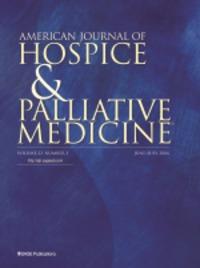Headline
Advance care planning (ACP) more than one month prior to death is associated with decreased acute care utilization at the end of life and in-hospital death for people with serious illness.
Context
Patients with multimorbidity are at a higher risk of needing emergency and hospital care at the end of life. ACP allows patients to document and discuss their treatment goals with their providers and opt out of higher intensity care if desired. This study looks at the predictors of high-intensity end-of-life care and the probability of in-hospital death among patients with dementia, heart failure, pulmonary disease, or renal disease with or without multimorbidity.
Findings
Among all patient groups studied, people with dementia and multimorbidity had the highest odds of experiencing high-intensity care at the end of life. Patients with each of the four studied conditions, with or without multimorbidity, experienced lower odds of in-hospital death when ACP was documented more than 30 days before death. Similarly, almost all patient groups experienced lower odds of hospitalization when ACP was completed 30 days before death.
Takeaways
Having a documented ACP allows patients with serious illness to opt out of higher intensity care at the end of life. Health care providers that want to align end-of-life care with patient’s goals can use the results of this study to help prioritize ACP documentation for patients with multimorbidity, including people with dementia.




